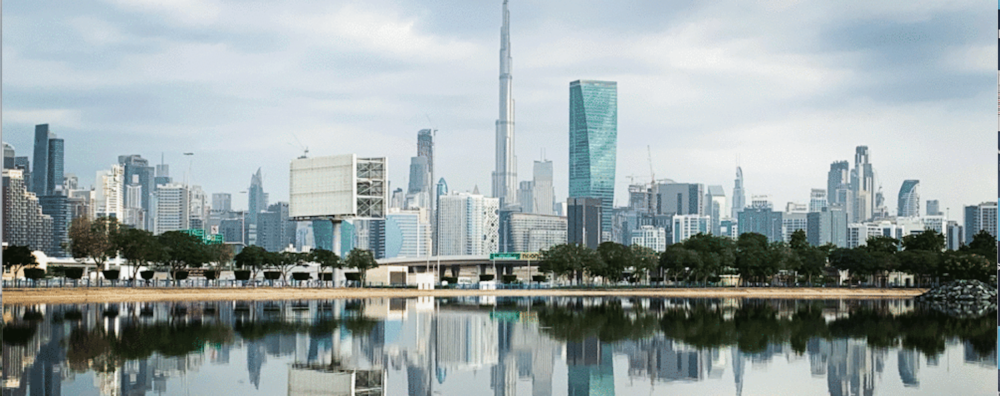
Son2’s school is turning 40, which in Dubai time is quite ancient! Anyone who lives here will know this age is impressive and deserves to be marked, especially as four decades ago the school was just a small huddle of buildings in the middle of the desert, with staff and pupils trekking across the sand to the nearest shop during break-time.
Intrigued by all things ‘old’ in the UAE, I helped out at the most wonderful exhibition commemorating JESS’s big birthday this morning, and learnt so much I’ve been inspired to put together a blog post on what school life was like in the desert all those years ago.
The facility was planned when Dubai English Speaking School, the first British curriculum school in the emirate, could no longer cope with the rapid increase in the expatriate population.
 The school’s story began in a small flat in Deira, before its relocation to a villa in Jumeirah, which was generously gifted by his Royal Highness Sheikh Rashid bin Saeed al-Maktoum, Ruler of Dubai. The school moved to its present Jumeirah site in 1977, where it consisted of one villa, 75 pupils, six staff and three portacabins. The size of the classes depended on the size of the bedrooms.
The school’s story began in a small flat in Deira, before its relocation to a villa in Jumeirah, which was generously gifted by his Royal Highness Sheikh Rashid bin Saeed al-Maktoum, Ruler of Dubai. The school moved to its present Jumeirah site in 1977, where it consisted of one villa, 75 pupils, six staff and three portacabins. The size of the classes depended on the size of the bedrooms.
Desert surrounded the school for miles; there were no villas in sight, and the buildings which now line Sheikh Zayed Road had not yet been constructed. Safa Park didn’t exist. The only thing that could be seen in the distance was the newly completed Metropolitan Hotel.
The track leading to the school from Al Wasl Road was just a dirt road and on foggy days it was easy to drift off course. Flooding was a problem and after heavy rain the entrance area would be completely under water.
“In those early days, one had to be very flexible and unflappable and able to take things in one’s stride,” says JESS’s original headmistress Rita Biro. “When we first occupied the site, the electrical connection had not been completed and the power was produced by a massive generator. My first daily task was to make my way across the sand to this great beast and use all my strength to throw the switch and I still have the muscles to prove it!”
Paul Austin, currently director of PE at JESS Ranches, arrived in a very barren Dubai in 1976. “All I remember being able to see was the desert and the Trade Centre. Sheikh Zayed Road was the Abu Dhabi Road and there were still camels walking around everywhere.”
He started at JESS in 1977, just before his sixth birthday. There were no sports facilities at the time, and he remembers doing a football club on the sand outside the school, the area now used for parking. He recalls just one fixture during his five terms at JESS, against the only other international school at the time. “I was the goal keeper, and although I’m told I played well, we lost 0-10.”
Academically, he remembers trying to make himself invisible during maths class. “In fact, my maths was so bad that when asked what my tables were like during an interview for Prep School, I confidently replied that we had desks at JESS so I wasn’t sure.” Like many of the children at JESS at the time, he went on to boarding school.
Since its humble beginnings, JESS has stood strong through two regional wars (with contingency plans for evacuation via Fujairah in the Gulf War) and the global economic crisis of the 00s.
A second branch opened in Arabian Ranches in 2005. Memories of this new development include travelling to the under-construction Ranches site and wondering why they were driving out to the middle of nowhere; having to use the toilets in the shopping centre; no playgrounds to start with; repeated closures due to water pipes bursting; and Costa Coffee deliveries.
Some things never change!
The exhibition is an incredible illustration of the JESS journey through time. Some things never change, though, and I wanted to highlight several snippets that made me smile:
Shoes & driving: I’m not sure what year, but during the early days, one of the mums, wearing very high platform-soled shoes and driving a 4×4, pulled in to park, not knowing where her feet began and ended. She accelerated instead of breaking and ploughed into a breeze-block wall, demolishing it.
Demand for places: Waiting lists have been a problem right from the start. When the school reached several hundred students, the headmistress had to call a stop to expansion, citing the difficulty of teaching amid rubble and construction noise.
Parent involvement: This tradition began from the get-go, with parents in Dubai more actively involved in school than in Britain. Parents ran sports clubs during their lunch breaks before returning to work at 4pm; mothers came in with younger children to assist with activities; and it was through an action group that the swimming pool was funded.
Spring in the sunshine: The annual spring fair is a long-running institution, including, back in the day, a decorated Hat Parade with Easter Egg prizes; a display by the Dubai and Sharjah Morris Dancers; an attempt to break the non-stop skipping world record; traditional stalls selling home-made cakes, marmalade, etc; a tombola, lucky dip and Guess Your Weight (!). More British than Britain!
Here’s to the next 40 years!


















